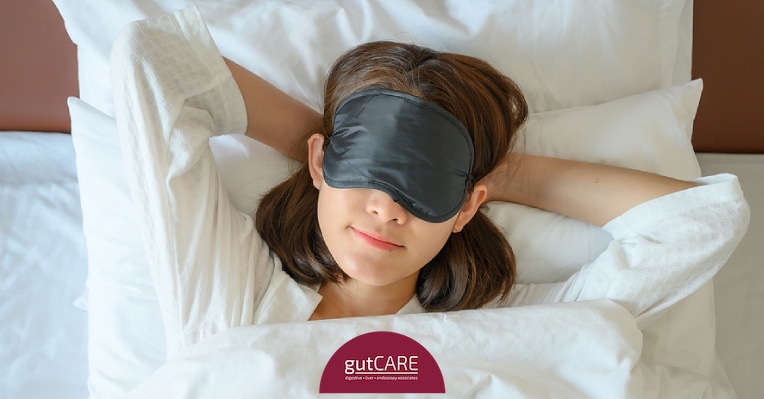The Quality Of Your Sleep Is Affected By Your Gut Health

Getting the right amount of good quality sleep is extremely important to go on with your daily activities. However, not everyone gets to enjoy easily falling asleep or being able to sleep at all every night. There are various reasons why some people can’t fall asleep sometimes, including feeling stressed, anxious, or depressed. Aside from everything that’s going on inside the brain, another factor that may be the culprit is located a few inches down your brain – your gut.
Have you tried drinking an afternoon cup of coffee, and no matter how many times or how hard you’ve closed your eyes at your bedtime, you still can’t fall asleep? If so, then you probably understand that what happens in your gut can indeed affect your beauty sleep. If you are unsure or not yet convinced about the connection, we’ve got your back. Read on to know how the quality of your sleep is affected by your gut health.
1. Gut follows your circadian rhythms
Circadian rhythms refer to the consistent sleep schedule and are simply internally driven cycles that time your internal clock throughout the day. These rhythms help an individual fall asleep and wake up at the appropriate times and follow the light and dark cycle of the sun. Research shows that the microorganisms present in your gut microbiome exhibit circadian rhythms.
The gut bacteria follow your circadian rhythms, which process nutrients differently. The moment that you wake up, sleep and eat affects the internal clock of your gut. A shift in schedule like eating and sleeping patterns disturb your gut bacteria which leads to insomnia, sleep loss, or metabolic syndrome. So, when you aren’t able to sleep well, your gut is affected directly and can lead to even poorer sleep issues.
2. Gut bacteria affect your sleeping patterns
In addition to circadian rhythms, your gut bacteria also affect your normal sleep patterns. Research discovers that gut bacteria play a vital role in the creation of key brain chemical messengers, which greatly affect your sleep-wake cycle. This means that serotonin is a must-have brain chemical messenger, which increases “sleep pressure” and encourages you to fall asleep.
3. Gut may show sleep disorders indicators
Your gut also affects the chances of developing sleep disorders or conditions that might be preventing you from having a good night’s sleep. Issues like insomnia might be due to the close connection between your brain and your gut bacteria. A study indicates that people who suffer from insomnia indeed have a different composition of bacteria. For people who live with insomnia, achieving a balanced gut bacteria might help promote or encourage sleep.
4. Better gut bacteria diversity leads to restful sleep
The struggle to fall asleep or experiencing not being completely rested in the morning could be rooted in your gut. Prebiotics may be a potential sleep aid and helps battle the physiological effects of stress. Also, eating the right amount of fibre nourishes gut bacteria and helps influence the all-important metabolites which affect your brain’s serotonin production.
Final Thoughts
In summary, all this information shows that your food intake greatly affects your sleep quality. If you found yourself stumbling to sticking to a sleep schedule, healthy food and other healthy habits for your gut might help! If you would like to know more about how to take care of your gut to have a good night’s sleep, feel free to visit our clinic! GUTCARE offers various treatments and services like colon cancer in Singapore!




